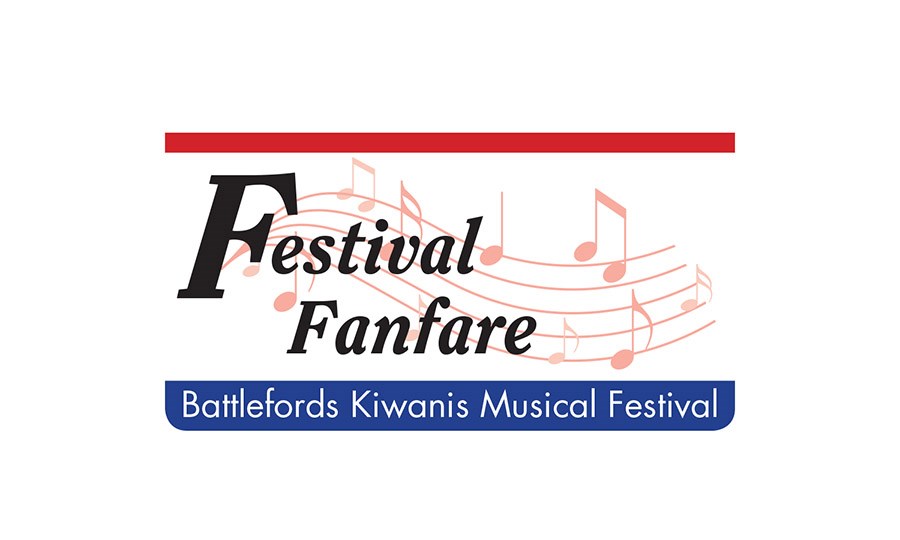By Kelly Waters / Battlefords Kiwanis Music Festival Committee
The festival program cover contest has completed, so expect the winner to be announced sometime in the near future. Also, since entries for the festival have been completed, the adjudicator roster can be announced. Expect more details in future columns. Opening the festival Tuesday, March 24, band adjudicator is Mark Ward from Medicine Hat, Alta. Of Saskatoon is vocal and choral adjudicator beginning Sunday, March 29. Travelling from Edmonton, Alta., David Wilson is adjudicating speech arts and musical theatre Tuesday, March 1. Hailing from Martensville, Sharon Rodney is with us on Thursday, April 2 as piano adjudicator. Strings adjudicator on Friday, April 3, is Anna Marie Bekolay from Saskatoon.
Further on the subject of the value of music education, here is some information featured online at PBS Kids for Parents.
“Whether your child is the next Beyonce or more likely to sing her solos in the shower, she is bound to benefit from some form of music education. Research shows that learning the do-re-mis can help children excel in ways beyond the basic ABCs.” Learning music facilitates learning other subjects and enhances skills children use in other areas of school and life.Ěý Making music involves more than the voice or fingers playing an instrument; a child learning about music has to tap into multiple skill sets, often simultaneously as using ears and eyes along with large and small muscles. Children come into the world ready to decode sounds and words; music education can enhance those natural abilities.
Research indicates the brain of a musician, even a young one, works differently than that of a non-musician. “There’s some good neuroscience research that children involved in music have larger growth of neural activity than people not in music training. When you’re a musician and you’re playing an instrument, you have to be using more of your brain,” says Dr. Eric Rasmussen, chair of the Early Childhood Music Department at the Peabody Preparatory of Johns Hopkins University, where he teaches a specialized music curriculum for children aged two months to nine years. In fact, a study led by Ellen Winner, professor of psychology at Boston College, and Gottfried Schlaug, professor of neurology at Beth Israel Deaconess Medical Center and Harvard Medical School, found changes in the brain images of children who underwent 15 months of weekly music instruction and practice. The students in the study who received music instruction had improved sound discrimination and fine motor tasks, and brain imaging showed changes to the networks in the brain associated with those abilities, according to the Dana Foundation, a private philanthropic organization that supports brain research.
Research has also found a causal link between music and spatial intelligence, which means understanding music can help children visualize various elements that should go together, like they would do when solving a math problem.
“We have some pretty good data that music instruction does reliably improve spatial-temporal skills in children over time,” explains Pruett, who helped found the Performing Arts Medicine Association. These skills come into play in solving multistep problems one would encounter in architecture, engineering, math, art, gaming and especially working with computers. And it doesn’t end there: along with better performance results on concentration-based tasks, music training can help with basic memory recall. “Formal training in music is also associated with other cognitive strengths such as verbal recall proficiency,” Pruett says. “People who have had formal musical training tend to be pretty good at remembering verbal information stored in memory.”
Music can improve your child’s abilities in learning and other non-music tasks, but it’s important to understand music does not make one smarter. As Pruett explains, the many intrinsic benefits to music education include being disciplined, learning a skill, being part of the music world, managing performance, being part of something you can be proud of and even struggling with a less than perfect teacher. Music enriches his or her appetite for things that bring you pleasure and for the friends you meet.”
“There is a massive benefit from being musical that we don’t understand, but it’s individual. Music is for music’s sake,” Rasmussen says. “The benefit of music education for me is about being musical. It gives you have a better understanding of yourself. The horizons are higher when you are involved in music,” he adds. “Your understanding of art and the world, and how you can think and express yourself, are enhanced.”
“Music education opens doors that help children pass from school into the world around them a world of work, culture, intellectual activity, and human involvement. The future of our nation depends on providing our children with a complete education that includes music.” – Gerald Ford
Ěý
Ěý




